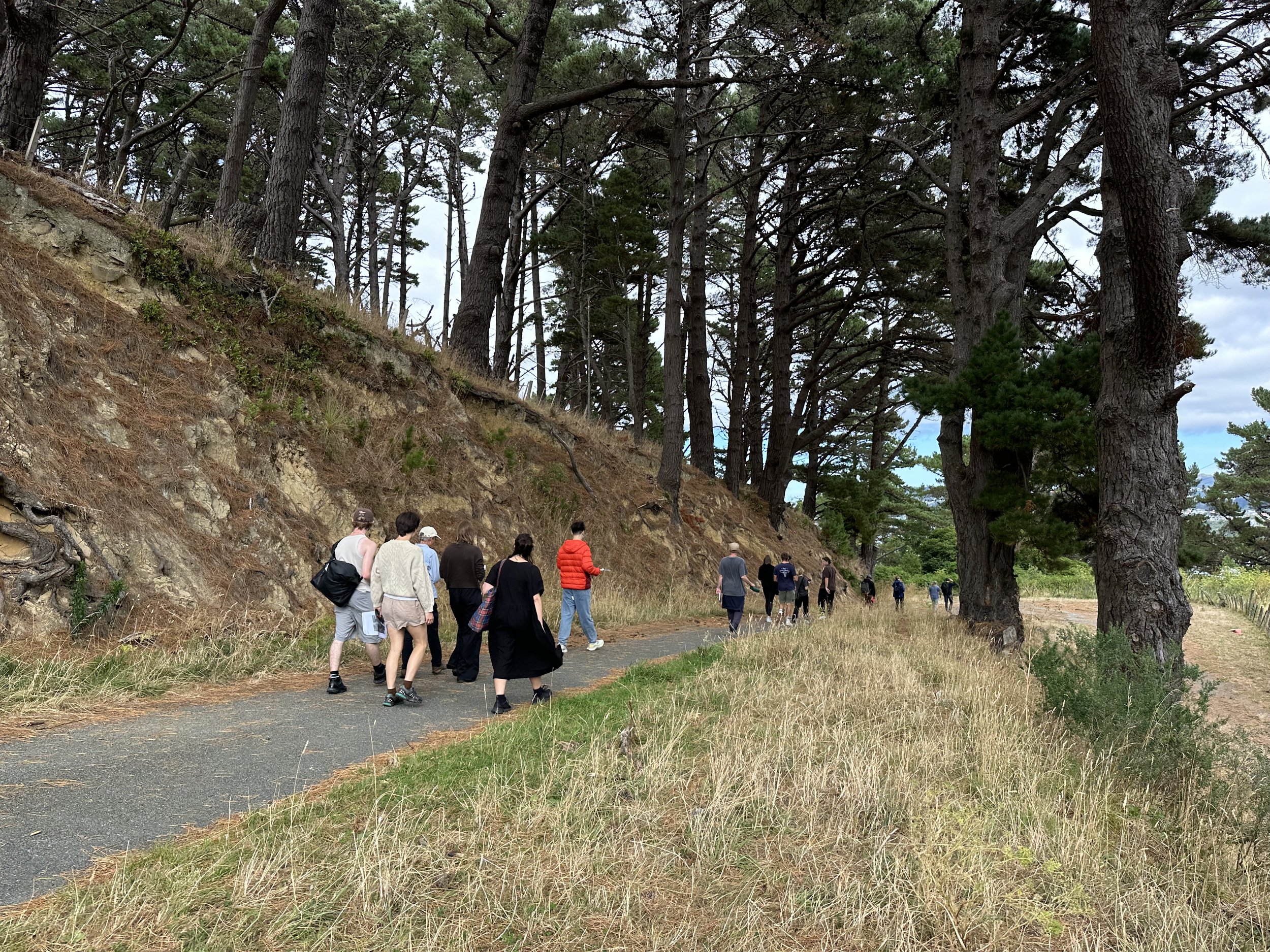
Take Action
submit to WCC Long Term Plan Consultation
Have Your Say : WCC Consultation
Consultation is now open on Wellington City Council’s Annual Plan 2025/26.
As part of the plan, WCC proposes a establishing Mātai Moana as a new reserve on Te Motu Kairangi/Miramar Peninsula.
You can see the WCC documentation and submit your thoughts here
The submission from Friends of Miramar Peninsula can be seen below.
NGĀ TAIPITOPITO O TE MAHERE Ā-TAU | 2025/26 ANNUAL PLAN CONSULTATION
Submission from Friends of Miramar Peninsula (FOMP) concerning Pages 37–38:
Mātai Moana Reserve, Miramar Peninsula/Te Motu Kairangi
WHO WE ARE
1. Friends of Miramar Peninsula is an apolitical, not-for-profit community organisation dedicated to protecting, restoring and safeguarding the landscape, native wildlife and historic sites of northern Miramar Peninsula/Te Motu Kairangi in Wellington. It evolved from Buy Back the Bay, a community group dedicated to keeping Shelly Bay as open space for public recreation and regeneration of native flora and fauna.
2. Friends of Miramar Peninsula believes the public is entitled a democratic say on projects of local and national significance, especially those that will have major and permanent social, cultural and environmental impacts. Our submission is based on:
a. Our commitment to the protection of northern Miramar Peninsula/Te Motu Kairangi and other significant wilderness areas in Wellington from environmental, infrastructural and historical degradation.
b. Our extensive consultation for several years with members of the Te Motu Kairangi/Miramar community, iwi and relevant citywide interest groups about their aspirations for Mātai Moana, including through public meetings, research polling and focussed hui[1].
c. Our liaison with Te Herenga Waka Victoria University landscape design students and lecturer Carles Martinez about their comprehensive study of and design for Mātai Moana National Heritage Park, which led to organising public exhibitions and input. This study is an invaluable resource for any body that is set up to manage a reserve at Mātai Moana.
d. Lessons learned when community aspirations have been ignored by the council, as in the case of Shelly Bay. Time and time again, the best outcomes are achieved when local communities are fully engaged in decision-making about and governance of important natural and historic areas.
A TREASURED COMMUNITY ASSET
Matai Moana is not abandoned land. It is a treasured asset of the Miramar community, which has worked hard in numerous ways to improve and protect it. It is outrageous to suggest that the community should play no part in its future governance and management.
The tireless efforts of Predator-Free Miramar have resulted in a unique urban environment for native birds and other wildlife: the area is now commonly known as ‘Zealandia without Fences’.
The tireless efforts of Te Motu Kairangi Miramar Ecological Restoration have resulted in thriving areas of native forest, including streams and waterfalls, adjoining the prospective reserve;
The tireless efforts of Friends of Miramar Peninsula have saved the land from intensive residential development, resource consent for which was applied for by Taranaki Whānui.
The tireless efforts of members of Miramar Prison Garden have preserved, nurtured and developed an historic allotment.
The tireless efforts of local schools have educated students about the land through visits to the site, especially to land presently leased by LINZ for small farming.
The tireless efforts of many individual members of the community to stop vandalism on the land.
OUR POSITION
1) We support the establishment of Mātai Moana National Heritage Park, to include the 76 hectares of land at Watts Peninsula PLUS the full extent of the adjoining Department of Corrections land that includes the former Mt Crawford prison land and buildings.
2) We support this entire area being vested as a reserve under the Reserves Act to prevent its future alienation and/or privatisation.
3) We urge the Council to ensure the retention and protection of the community-run Miramar Prison Garden.
4) We support the Council’s allocation of $750,000 annually to support the operational and maintenance costs of Mātai Moana as a reserve, although we consider this a drop in the ocean of the funding that is required for such a large and currently degraded area.
5) We strongly urge the Council to insist the Government honour its commitment to create a national heritage park on Mātai Moana/Watts Peninsula, as it publicly stated in 2011 and 2019. We note that the area is Crown land and presently under the management of Land Information New Zealand. It contains significant historic sites of importance not just to Wellington but to the whole of Aotearoa New Zealand as among the earliest places of Māori habitation.
6) The Council should ensure the Government honours this commitment by allocating money required for essential capital works to, for example:
(a) respect, protect and commemorate Māori pā sites and kainga;
(b) clear invasive exotic vegetation and replant with natives, especially those conducive to the health and protection of native birdlife, insects and aquatic wildlife;
(c) restore historic military structures and repurpose them for park use; and
(d) create a network of safe walking trails, seating areas and interpretive signage.
7) We do not support the Council and Taranaki Whānui assuming total responsibility for this land. We support the Mātai Moana historic reserve being managed by a genuinely representative trust comprising Wellington City Council, Taranaki Whānui, DOC and community representation, to include: Predator-Free Miramar, Friends of Miramar Peninsula, Te Motu Kairangi Miramar Ecological Restoration, and Miramar Prison Garden. The Council must actively engage with the local community to ensure buy-in for the Trust before the final membership is confirmed.
8) We would like to be heard to support of our submission.
[1] For report on hui held on August 13, September 10 and October 1, 2023, see Appendix One attached HERE